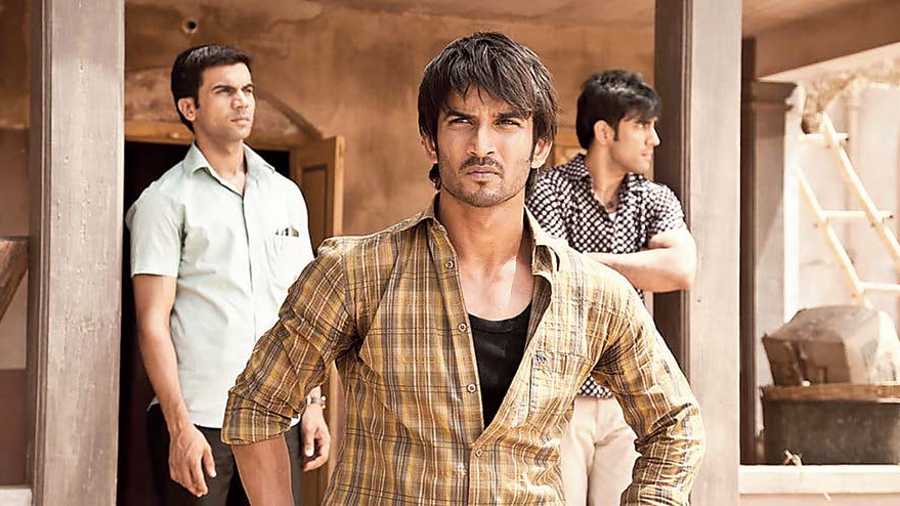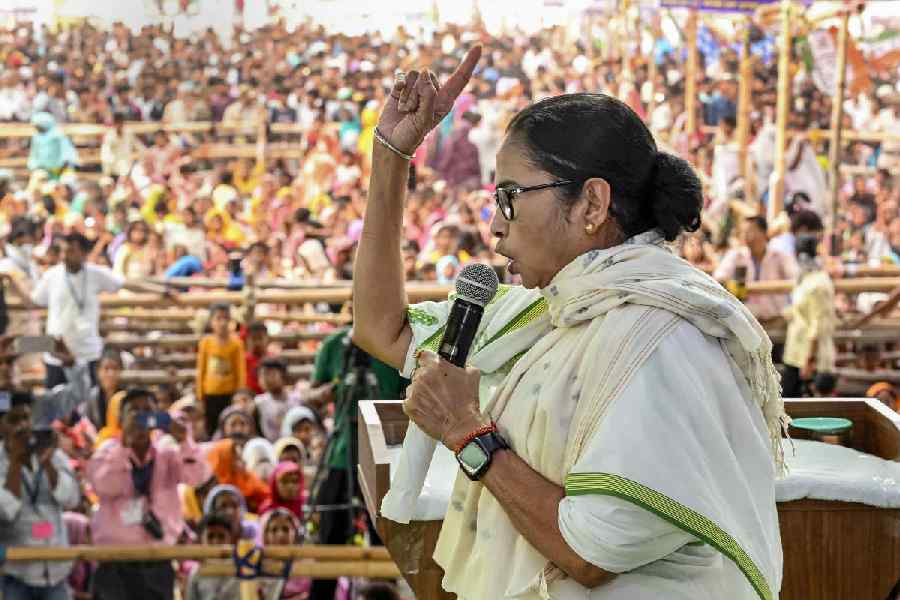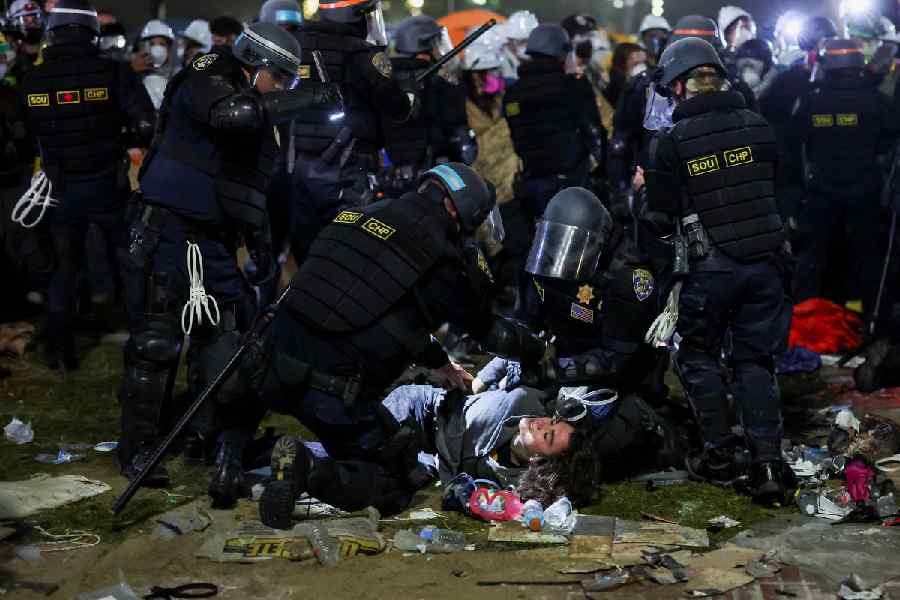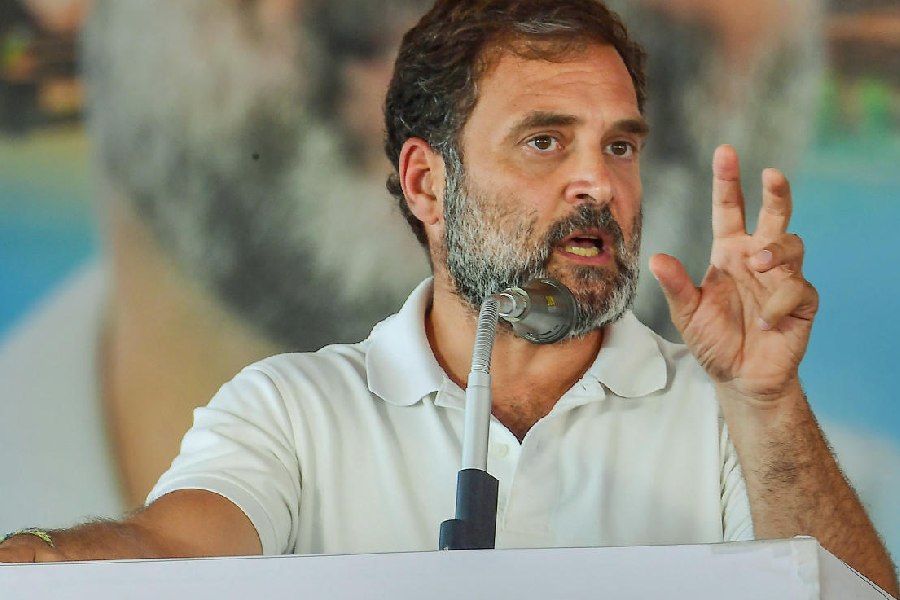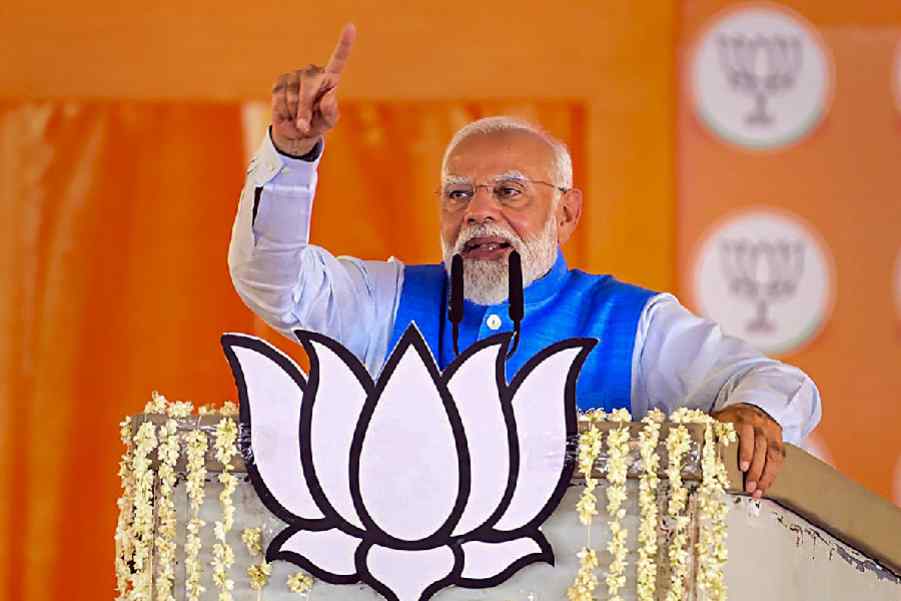Kai Po Che! turns nine today. The film — based on Chetan Bhagat’s bestselling book The 3 Mistakes Of My Life — was critically acclaimed on release and also scored at the box office. The story of three friends whose religious, personal and political loyalties are tested against the backdrop of the 2002 Gujarat riots, was the debut film of the late Sushant Singh Rajput and starred Rajkummar Rao and Amit Sadh in parallel roles. Kai Po Che!’s music, scored by Amit Trivedi was a winner, with the direction and performances coming in for special praise. As the film — whose title translates to ‘I have cut the kite’ in Gujarati, turns nine — The Telegraph goes down memory lane with its director Abhishek Kapoor.
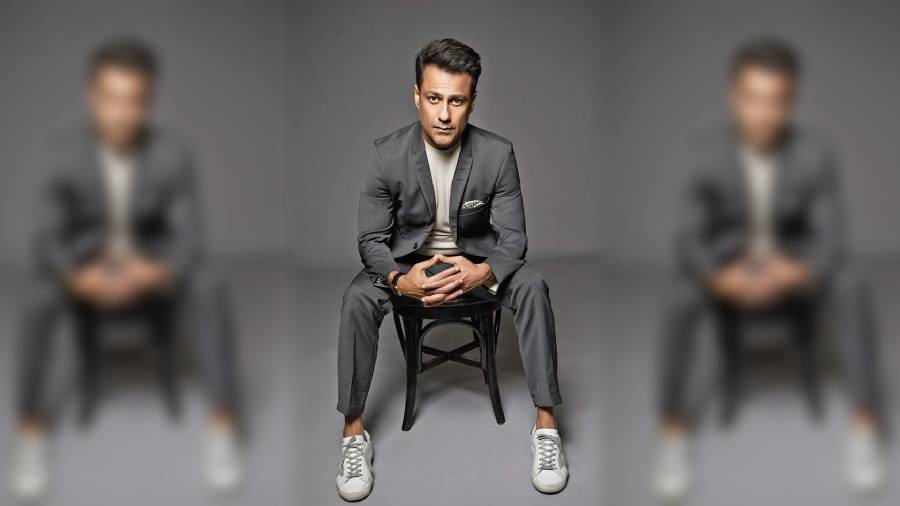
Abhishek Kapoor.
On the ninth anniversary of its release, what are the emotions like, especially because Kai Po Che! marked the debut of the late Sushant Singh Rajput who was also a close friend of yours....
It was a very tough film to make. Difficult to write, difficult to shoot and it took me a long time to put it together. The entire cast and crew of this film were fantastic... it was a film where everything eventually turned out absolutely right. Whether it was the casting, the music (by Amit Trivedi), the DoP (director of photography, Anay Goswamy), the production design... everything was great. And then, of course, the three actors I had, Sushant (Singh Rajput as Ishaan), Amit (Sadh as Omi) and Raj (Rajkummar Rao as Govind) and the chemistry that they shared was phenomenal. It was a great experience to make this film and the fact that you and I are talking about it nine years later only reinforces that.
Close to a decade later, when people talk to you about the film, what remains the predominant tenor of the conversation?
There are, of course, specific aspects of Kai Po Che! that they talk about, but it’s the overall impact that the film had which remains with the audience. It was a film that really moved viewers, and that’s what they express to me even now.
You have often spoken about how Kai Po Che! was a very challenging film to shoot. What were the toughest bits? I remember you telling me how you shot a major portion of the film in temperatures of 50°C in Gujarat....
There were a lot of logistical challenges for sure. Also, adapting a book into a screenplay is a different animal to handle. It took me a while to figure that out. Initially, I was looking to cast established actors in the three main roles, but the characters that they were, getting one big star wouldn’t do justice to the film. And then we decided to go with three new boys. But making such an expensive film with new actors is not easy because the returns are not upfront and all of that. But the conviction and faith that my producers Siddharth Roy Kapur and Ronnie Screwvala had in me really pushed me, and then was the whole process of zeroing in on these three actors and getting the crew together.
And then we shot in Gujarat in that heat. We kept going relentlessly in 50°C, and the film was shot in various parts of Gujarat. Also, this is a film that combines friendship, religion, politics and cricket and played out against the backdrop of the 2002 Gujarat riots. There is so much in that story and to get all of that on schedule and within budget was very challenging.
At any point, were you apprehensive about the depiction and fallout of the Gujarat riots? The 3 Mistakes Of My Life was, of course, based on it but you will agree that anything that’s adapted on screen has the potential to impact more, positively or negatively....
That’s why I take so much time in writing my scripts because I really need to be convinced about what I really want to say. The riots did take place in Gujarat, but every film-maker has their own perspective about how they want to look at an event. Like you said, to take words and put them on screen is to actually realise it and then it exists almost as reality. And so one has to be very responsible.
But then for me, Kai Po Che! was always essentially the story of three friends. The riots were always in the backdrop, but I never wanted to get into why the riots happened... that’s not what the film is about. The film, as I said, was about this friendship and the fact that when religious strife takes place, there are so many relationships that go awry and so many lives are lost. People lose so many people and so many families are destroyed. I wanted to talk about those families and people who we affected.
For me, as well as for a large section of the audience, Kai Po Che! is a rare film that is better than the book from which it is adapted. Did you get to hear a lot of that when the film released?
Yes, I did hear a lot of that. But as a film-maker, I have the highest respect for the book because the film is an extension of it, in some way or the other. I may have changed the story in the second half and rewritten parts of the three boys, but the soul and structure of Kai Po Che! came from The 3 Mistakes Of My Life. I have a lot of respect for the book because it helped me make the movie.
The title took a lot of people by surprise. Were you worried that it would alienate a large section of the audience?
Ya, we had a lot of discussions about what Kai Po Che! meant and how a large number of people wouldn’t understand that. We did think of using something more mainstream. But then, you only live once and I could only make this film once and I wanted to make it exactly how I set out to make it.
You made films before and you have made films since. How did working on Kai Po Che! contribute to your skills as a film-maker?
With every film, my attempt is to create new characters, a new story and visit a different world, and to bring new experiences to the audiences. In that process, there is a lot of unlearning that happens. When you finish a film and dive into a new one, you unlearn everything and you have to listen to a new idea and that idea tells you how to tell that story. It’s not about you, it’s about that idea and you have to be subservient to it. I have always tried to reinvent and Kai Po Che! has been a shining example of that.
Have you ever thought of a sequel and revisiting where Govind and Omi finally end up?
As of now, I have no plans of making a follow-up.

